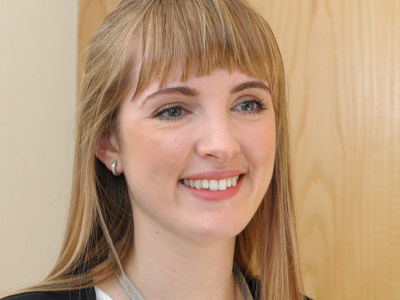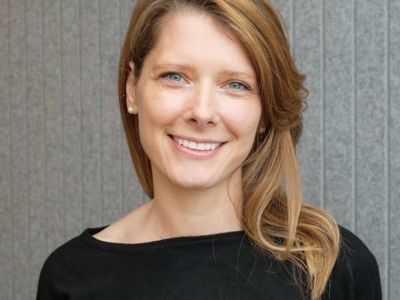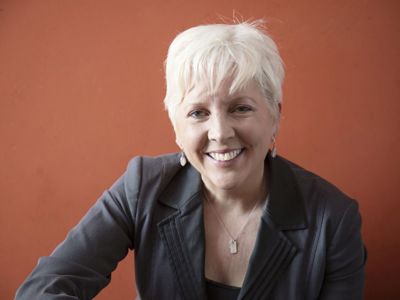Equal Pay Advice Service
A service offering free legal advice to individuals using Fawcett’s Equal Pay Advice Service. This is not in relation to our Supermarket claims.
Equal Pay Advice Service (“EPAS”) in partnership with Fawcett Society
If you think you might be earning less because of your sex, speak to our lawyers for free, confidential advice today. Leigh Day has partnered with the Fawcett Society to offer free legal advice to people who think they might be experiencing unequal pay.
Read more about the service below.
Get help today
What is Equal Pay?
First what it isn’t – equal pay is not the same as the Gender Pay Gap, although the two often get confused as both deal with the pay of male and female employees. The Gender Pay Gap is the difference between men's and women's average pay across organisations or the labour market, which is calculated as a percentage of men's earnings. In the UK, there is a gender pay gap of 14.3%.
The law dealing with equal pay is clear, unless the employer can prove that they have a genuine, non-discriminatory reason to explain why they are paying the man more than the woman, they must pay the man and the woman the same if they are doing equal work. Equal work includes work which is broadly similar in nature, work which has been previously rated as equivalent by the employer, or work which although different in nature is of equal value.
If you know, or suspect that you are not receiving equal pay, our advice service offers expert advice and support to help you explore your possible options. Speaking to an employment solicitor can help you decide whether to raise the issue with your employer.
It is as hard as ever for women to fight pay discrimination and I am thrilled that they have such powerful champions on their side. With Leigh Day joining Fawcett, the Equal Pay Advice Service is in the best possible hands".
Carrie Gracie, Former BBC China Editor
Get help today
Our team of employment lawyers, who also specialise in equal pay law, can provide up to 10 hours of free legal advice to help employees enforce their right to equal pay.
We have represented many employees in successfully resolving their equal pay concerns.
Confirmation of eligibility
The EPAS is aimed at women and men who:
- Suspect or know that they are being paid less than their colleagues of the opposite sex despite doing equal work and who
- Are paid a gross income of £40,000 or less per year
Under this service, we can offer advice and assistance to women and men who want to use negotiation to challenge their employer's pay practices.
Register your interest
If you have, or think you might have, an equal pay issue at work, please get in touch by completing our short form. If you meet the eligibility criteria, we may be able to help.
Once you fill in the form, we'll take the following steps:
-
You'll receive an automated receipt confirming that we've received your information.
-
One of our friendly team members will contact you by phone or email to discuss the information you have provided and any next steps. We aim to contact you within a week of receiving your form.
-
If you're eligible, we'll send you a Client Care letter confirming that you're a client.
-
One of our equal pay solicitors will contact you to discuss your case and provide up to 10 hours of free step-by-step advice.
EPAS was created to help employees challenge suspected pay discrimination and secure equal pay at work.
In 2018, Carrie Gracie, the former China Editor for BBC News, joined her colleagues to challenge the BBC over equal pay. Following a high-profile and successful case, Carrie received a settlement.
Carrie donated her settlement money to the Fawcett Society to set up the Equal Pay Advice Service.
Benefits of the Equal Pay Advice Service ("EPAS")
There are various benefits to using our EPAS, such as:
Access to free legal advice
Legal advice is often very expensive. EPAS provides up up to 10 hours free equal pay advice.
Feel confident about your right to seek equal pay.
If you qualify for free legal advice under EPAS, our team of equal pay lawyers will help you through your case, including calculating how much back pay you might be entitled to.
Support when you need it
EPAS supports employees on a lower income challenge pay discrimination.
Feel valued
If you can resolve your equal pay issues, you may feel more valued and fulfilled.
Equal financial footing
Being paid the salary you are legally entitled to can help put you on an equal financial footing throughout your working life until retirement. Pay discrimination is known to affect female employees' pension contributions and contribute to a gender pension pay gap.
What our clients say
I would definitely recommend this service. If you are unable to afford private legal help and need someone to support you in framing your case, this service does that.
Equal Pay Advice Service FAQs
We review all applications on a case-by-case basis. If you earn over £40,000 a year, please briefly state your salary and the reasons for requesting assistance in the box on the form.
Yes, all information you share with us will remain confidential. You can trust that we will never disclose any information to third parties without your consent.
We cannot guarantee that we will be able to resolve your equal pay issue within 10 hours of free legal advice, but we will do our best and compensation, or back pay is the usual remedy.
We will do our best to resolve your equal pay issue within the 10-hour allowance. If this isn't possible, we will review your case and discuss the next course of action with you.
No, there are no other fees to access our free advice service.
Yes, as the legal advice provided will be based on Equality Act 2010.
Contact us
What our clients say
I’m very grateful for the service provided by Jessica and her colleagues at Leigh Day who run the Fawcett Equal Pay Advice Service at every stage of my contact.
News
- Carrie Gracie leaves BBC after 33 years. Guardian 26.08.2020
- BBC's Carrie Gracie gives £360K payout to charity. The Times 10.11.2018
- Carrie Gracie calls watchdog's report on BBC equal pay a 'whitewash'. BBC 12.11.2020








